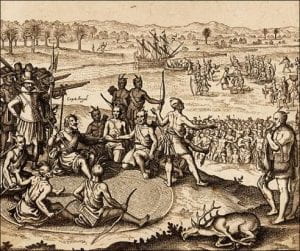Author: sglesley
Protected: Materials for Chakravarty Workshop
Protected: Materials for Campagna Workshop
MONDAY, April 17th, Ryan Campagna, “The Interanimation of Race in John Donne’s Creature Colonialism”

Protected: Materials for Mikkelson and Harrison Workshop
MONDAY, January 9th, Jane Mikkelson and Timothy Harrison, “‘Worlds Together Shined’: Bidel, Traherne, and Collaborative Comparison”

If you would like to join our mailing list, please click here. We are committed to making our workshop accessible to all persons. Questions, requests, and concerns should be directed to Andrés Irigoyen (airigoyen@uchicago.edu) or Sarah-Gray Lesley (sglesley@uchicago.edu).
Abstract from the Authors
At the same moment in two distant parts of the globe, two poets who did not know of each
other’s existence both confronted an ancient philosophical question—how does human
knowledge begin?—by imaginatively reconstructing their own originary experiences. In poetry
and autobiographical prose, Thomas Traherne (in England) and Bidel Dehlavi (in India) describe
being in the womb, birth, nursing, first thoughts. Deeply original in their own contexts yet
strikingly similar to each other, these accounts demand comparison. But what kind of
comparison? In this essay, we rehearse several possible methodologies, and argue that Bidel and
Traherne belong to a shared intellectual world shaped by the philosophy of Ibn Sīnā (Avicenna),
whose influential ideas about self-awareness refracted throughout premodern Afro-Eurasia. By
assembling texts from non-proximate traditions and comparing them collaboratively, we attempt
to dislodge the siloed ways of thinking that have come to structure the study of early modern
literatures.
MONDAY, November 28th Ryan Campagna, “A Soul Drowned in a Lump of Flesh”: Issues of Racial Formation in John Donne’s Natural Law and Cosmopolitanism

